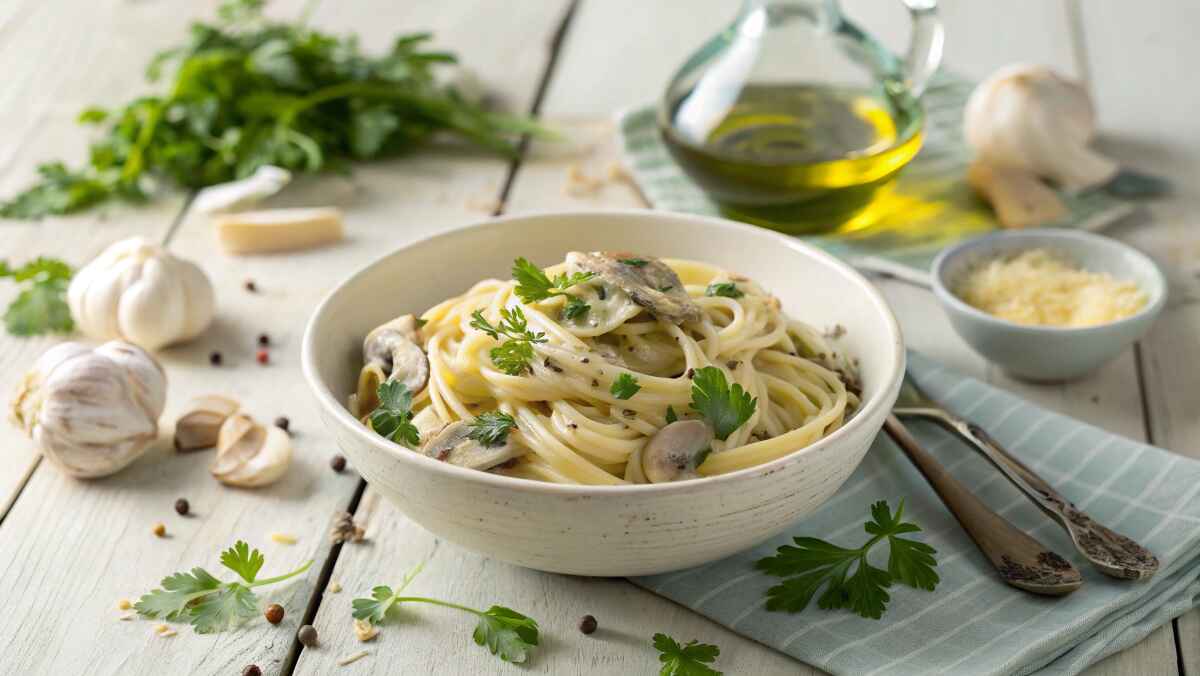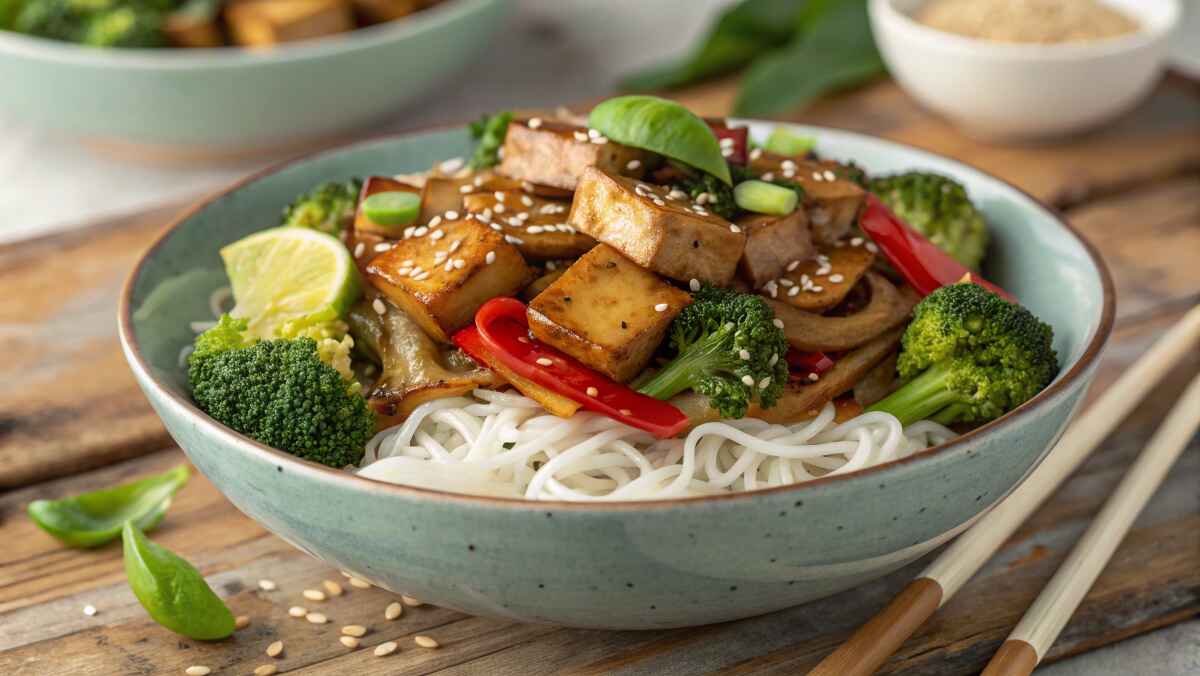Potatoes are a key ingredient in many soups, adding a hearty texture, subtle sweetness, and natural thickening properties. Whether you’re preparing a creamy chowder, a chunky stew, or a light vegetable soup, potatoes contribute to both flavor and consistency.
However, one common question that often arises is: Should I cook potatoes before adding to soup? The answer depends on the type of soup, the variety of potatoes used, and the texture you want to achieve. Let’s explore when to add raw potatoes and when pre-cooking might be the better choice.
The answer depends on the type of soup, the variety of potato, and your desired texture. In some cases, adding raw potatoes works best, while in others, pre-cooking them results in a better consistency.
This guide will explore:
- When to add raw potatoes to soup
- When to pre-cook potatoes before adding them
- How different potato varieties behave in soup
- Common mistakes to avoid
- Expert cooking tips to achieve the perfect texture
By the end, you’ll have a complete understanding of how to incorporate potatoes into any soup for maximum flavor and ideal consistency.
Do You Need to Cook Potatoes Before Adding Them to Soup?
In most recipes, you don’t need to pre-cook potatoes before adding them to soup. Instead, they can be diced and cooked directly in the simmering broth.
Benefits of Cooking Potatoes in Soup
✔ Enhanced flavor absorption – Raw potatoes soak up the seasonings and broth as they cook.
✔ Natural thickening – The starch from potatoes blends into the soup, creating a richer texture.
✔ One-pot convenience – No need for extra steps or dishes, making the process more efficient.
However, there are certain situations where pre-cooking potatoes is beneficial, such as:
- When making chunky soups that require firmer potato pieces.
- If using waxy potatoes that don’t break down easily.
- When preparing quick-cook soups, where every minute counts.
Let’s take a closer look at when you should add raw potatoes and when pre-cooking is the better choice.
Why Add Raw Potatoes to Soup?
In most traditional soup recipes, raw potatoes are added directly to the broth. This method works particularly well in soups that are simmered for at least 20–30 minutes, allowing enough time for the potatoes to soften and release starch.
1. Enhanced Flavor Absorption
When potatoes cook in the broth, they absorb the surrounding flavors. This creates a well-balanced and cohesive dish where every spoonful is infused with seasoning and aromatics.
2. Natural Thickening
Raw potatoes release starch as they cook, which naturally thickens the soup. This is especially useful in:
- Creamy potato soups
- Chowders
- Rustic vegetable soups
By allowing the starch to integrate into the liquid, you can skip artificial thickeners like flour or cornstarch.
3. Saves Time and Effort
Pre-cooking potatoes separately requires an extra pot, extra water, and extra time. Adding them raw eliminates this step and simplifies the process.
4. Ideal for One-Pot Cooking
If you love minimal cleanup, cooking potatoes directly in the soup is the easiest approach. Everything simmers together in one pot, ensuring consistent seasoning.
Here’s an expanded version of the Best Soups for Adding Raw Potatoes section with more detail on why raw potatoes work well in these soups, how they enhance texture and flavor, and additional tips for achieving the best results.
Best Soups for Adding Raw Potatoes
Raw potatoes are a great addition to many types of soups because they naturally absorb flavors, release starch to thicken the broth, and develop a soft, comforting texture as they cook. Here are some of the best soups where adding raw potatoes enhances both flavor and consistency:
1. Classic Potato Soup 🥔
Potato soup is a perfect example of how raw potatoes can be used to build a rich, hearty, and creamy texture without needing artificial thickeners. Since potatoes are the star ingredient, cooking them raw allows them to:
✔ Break down slightly, releasing starch to thicken the soup.
✔ Absorb butter, herbs, and aromatics, creating a deeply flavorful base.
✔ Blend smoothly if pureed, producing a velvety consistency.
Tips for Using Raw Potatoes in Potato Soup:
- Use starchy potatoes (like Russets or Yukon Golds) for the best thickening effect.
- Dice potatoes evenly to ensure they cook at the same rate.
- Simmer for at least 25–30 minutes to fully soften and develop flavor.
- Add milk or cream at the end to avoid curdling.
👉 If you love potato-based dishes, you might also enjoy Potato Mille-Feuille, a unique layered potato dish!
2. Rustic Vegetable Soup 🥕🥔
Vegetable soup is one of the most versatile and comforting soups, and raw potatoes play a key role in:
✔ Soaking up the flavors of the broth, herbs, and spices.
✔ Adding natural thickness without needing flour or cornstarch.
✔ Providing a soft, tender bite that balances other vegetables.
Unlike creamy potato soup, vegetable soup benefits from maintaining some texture in the potatoes. Since it’s a slow-simmering soup, raw potatoes have enough time to cook thoroughly while releasing just enough starch to create a lightly thickened broth.
Tips for Using Raw Potatoes in Vegetable Soup:
- Add potatoes early in the cooking process so they have time to soften (usually 25–30 minutes).
- Choose all-purpose potatoes (like Yukon Golds) for a balance between structure and creaminess.
- Cut the potatoes into uniform chunks to ensure even cooking.
- Pair with hearty vegetables like carrots, celery, and green beans for a balanced texture.
👉 Looking for another delicious soup option? Check out Panera Chicken Tortilla Soup for a flavorful and satisfying alternative!
3. Creamy Chowders (Corn, Clam, or Seafood Chowder) 🥣
Chowders are rich, comforting soups that benefit from the natural thickening power of raw potatoes. Whether you’re making corn chowder, clam chowder, or a seafood chowder, raw potatoes provide:
✔ A smooth, velvety consistency as they cook and release starch.
✔ A hearty bite that complements seafood, corn, or bacon.
✔ A way to reduce the need for heavy cream, making the chowder lighter but still creamy.
Why Raw Potatoes Work So Well in Chowders:
- Potatoes cook in the broth, absorbing seafood or smoky bacon flavors.
- The starch they release naturally thickens the soup, eliminating the need for added flour.
- They blend well with dairy, creating a silky consistency when paired with milk or cream.
Tips for Using Raw Potatoes in Chowders:
- Use Yukon Gold or Russet potatoes for a creamy texture.
- Simmer for at least 30 minutes to allow full starch release.
- If blending part of the soup, remove some potatoes, blend, and return them to the pot for extra thickness.
- Pair with seafood, sweet corn, or smoked meats to enhance the dish’s complexity.
👉 Want to try a creamy soup at home? Read How to Make Panera Soup at Home for restaurant-style inspiration!
When to Pre-Cook Potatoes for Soup
While raw potatoes work well in most cases, there are specific situations where pre-cooking is recommended.
1. When a Firmer Texture is Needed
In chunky soups or stews with large meat and vegetable pieces, potatoes need to retain their shape rather than dissolve. Pre-cooking prevents them from becoming too soft.
2. When Using Waxy Potatoes
Waxy potatoes (like red potatoes or fingerlings) contain less starch and tend to hold their shape longer. Pre-cooking them ensures they maintain a pleasant texture.
3. For Quick-Cooking Soups
If making a fast soup (15 minutes or less), pre-cooked potatoes allow you to skip long simmering times.
4. To Prevent Overcooking in Reheated Soups
If you plan to store and reheat soup multiple times, pre-cooked potatoes hold their texture better. Raw potatoes tend to break down and become mushy after multiple reheating cycles.
Best Soups for Pre-Cooked Potatoes:
✅ Panera Chicken Tortilla Soup – Pre-cooked potatoes allow for a quicker meal.
✅ Chunky Beef Stews – Ensures that the potatoes don’t overcook and turn mushy.
✅ Reheated Soups – If making large batches, pre-cooked potatoes maintain their integrity.
How to Decide: Raw or Pre-Cooked?
| Factor | Best Option |
|---|---|
| Longer Cooking Time | Raw Potatoes |
| Creamy or Blended Soup | Raw Potatoes (for starch release) |
| Chunky or Firm Texture | Pre-Cooked Potatoes |
| Quick Cooking Soup | Pre-Cooked Potatoes |
| Using Waxy Potatoes | Pre-Cooked Potatoes |
How to Prepare Potatoes for Soup
Raw Potatoes
- Peel and Dice – Cut into even-sized pieces for uniform cooking.
- Add Early – They need 20–30 minutes to soften and release starch.
Pre-Cooked Potatoes
- Boil or Steam – Cook in salted water until tender but firm.
- Add at the End – Stir in during the final 5–10 minutes of cooking.
Types of Potatoes and Their Role in Soup
| Type of Potato | Best Use | Raw or Pre-Cooked? |
|---|---|---|
| Russet (Starchy) | Thickening, creamy soups | Raw |
| Red or Fingerling (Waxy) | Chunky, structured soups | Pre-Cooked |
| Yukon Gold (All-Purpose) | Versatile – thickens slightly but holds shape | Either |
Common Mistakes to Avoid
🚫 Overcooking: Potatoes left in soup too long will disintegrate.
🚫 Undercooking: Adding potatoes too late results in a hard, crunchy texture.
🚫 Wrong Potato Type: Using waxy potatoes in creamy soups leads to a thin texture instead of a thick, rich consistency.
FAQs
1. Should I peel potatoes before adding them to soup?
For smooth, creamy soups, peeled potatoes are best. For rustic soups, leaving the skin on adds texture and nutrients.
2. Can I use frozen or canned potatoes?
Yes, but add them at the end since they’re already cooked. Overcooking makes them mushy.
3. How do I fix overcooked potatoes in soup?
Blend the soup for a creamy consistency or add fresh diced potatoes and cook briefly.
Final Thoughts
Choosing between raw and pre-cooked potatoes depends on cooking time, texture preferences, and the type of soup. Understanding how potatoes behave in different broths ensures perfectly cooked, flavorful, and well-balanced soups every time.
For more potato-based recipes, check out Potato Mille-Feuille and other creative ways to use potatoes in cooking! 🥔✨




